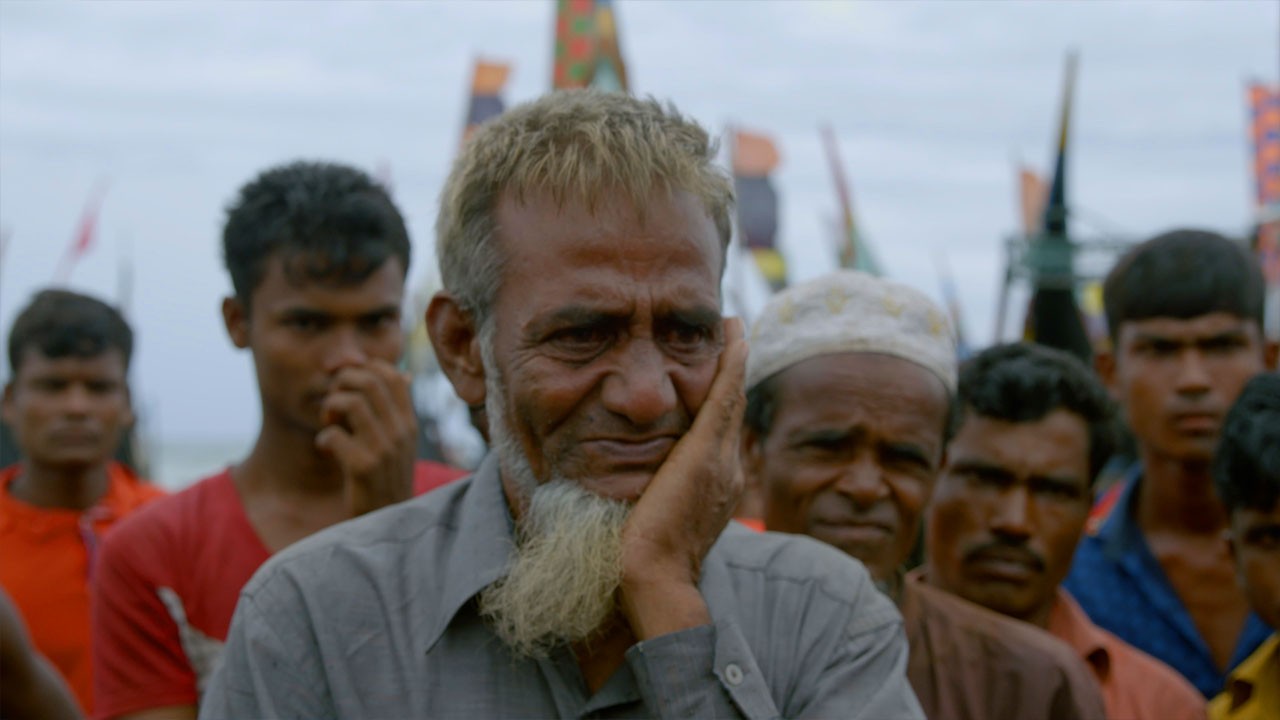Getty Images
Rohingya Muslim militants in Myanmar killed about 100 Hindu men, women and children during attacks last August, sparing only those who converted to Islam, according to an investigation by Amnesty International published Tuesday.The report gives chilling new detail on the actions of the Arakan Rohingya Salvation Army (ARSA), a militant group whose attacks in Rakhine State last year sparked massive blowback by Myanmar’s military, which has driven some 700,000 of the persecuted Rohingya minority out of the country.Citing testimony from dozens of survivors and witnesses, as well as photographic evidence analysed by forensic pathologists, the report details how ARSA militants, aided by local Rohingya, carried out a massacre in the village of Ah Nauk Kha Maung Seik in Rakhine State on August 25 — the same day the group launched a series of attacks on government security posts around the state.The report said the militants, dressed in black, robbed, bound, and blindfolded the 69 Hindus in the village, then separated the men, women and children. They proceeded to kill 53 of them, execution-style, including 23 children. Eight women and eight children were spared after the militants forced them to convert to Islam.Eyewitness Raj Kumari, 18, told investigators: “They slaughtered the men. We were told not to look at them. They had knives. They also had some spades and iron rods. We hid ourselves in the shrubs there and were able to see a little. My uncle, my father, my brother — they were all slaughtered.”Bina Bala, a 22-year-old survivor of the massacre, said: “I asked what they were doing. One of them replied, ‘You and Rakhine [a Buddhist ethnic group in Rakhine State] are the same, you have a different religion, you can’t live here’.”The bodies of 45 people from the village, in an area where Rohingya Muslims, Rakhine Buddhists, and Hindus had previously lived in close proximity, were unearthed in four mass graves last September.Also on August 25, all 46 Hindu residents of the neighboring village of Ye Bauk Kyar disappeared, and have not been seen again. Hindus in the area believe they were killed by the same ARSA cell.The report also details other ARSA attacks the following day, where more Hindus and Buddhists were killed.Myanmar’s brutal response to the ARSA attacks — a wave of savage state violence, mass murder and rape that the U.N. has said bears the “hallmarks of genocide” — has been the subject of broad international scrutiny and condemnation. Leading U.N. officials said in March they believed Myanmar was attempting to cover up evidence of its abuses, and that its campaign of ethnic cleansing was continuing. But little has emerged of the ARSA atrocities that helped spark the crackdown.READ: Facebook fueled violence and hatred in Rohingya crisis, UN investigators sayTirana Hassan, Amnesty International’s crisis response director, said it was vital that perpetrators on both sides were held to account.“ARSA’s appalling attacks were followed by the Myanmar military’s ethnic cleansing campaign against the Rohingya population as a whole. Both must be condemned — human rights violations or abuses by one side never justify abuses or violations by the other,” said Hassan.“It’s hard to ignore the sheer brutality of ARSA’s actions, which have left an indelible impression on the survivors we’ve spoken to. Accountability for these atrocities is every bit as crucial as it is for the crimes against humanity carried out by Myanmar’s security forces in northern Rakhine State.”ARSA was formed in around 2012 in reaction to long-term systematic persecution against the Rohingya — a stateless, predominantly Muslim community in majority-Buddhist Myanmar. The group first made its presence felt with a series of attacks on Myanmar security forces in October 2016, but has previously denied accusations it had massacred civilians.The Myanmar-focused human rights group Fortify Rights has previously reported that ARSA had killed Rohingya suspected of being government informants, and prevented Rohingya men and boys from fleeing the conflict zone by threatening to kill them. Cover image: The grave human rights abuses were reported during Myanmar's military crackdown, which followed after the attack of Arakan Salvation Army. Huge camps are being formed in the South of Bangladesh where most of the refugees arrive. (Martin Trabalik/SOPA Images/LightRocket via Getty Images)
Cover image: The grave human rights abuses were reported during Myanmar's military crackdown, which followed after the attack of Arakan Salvation Army. Huge camps are being formed in the South of Bangladesh where most of the refugees arrive. (Martin Trabalik/SOPA Images/LightRocket via Getty Images)
Advertisement
Advertisement
